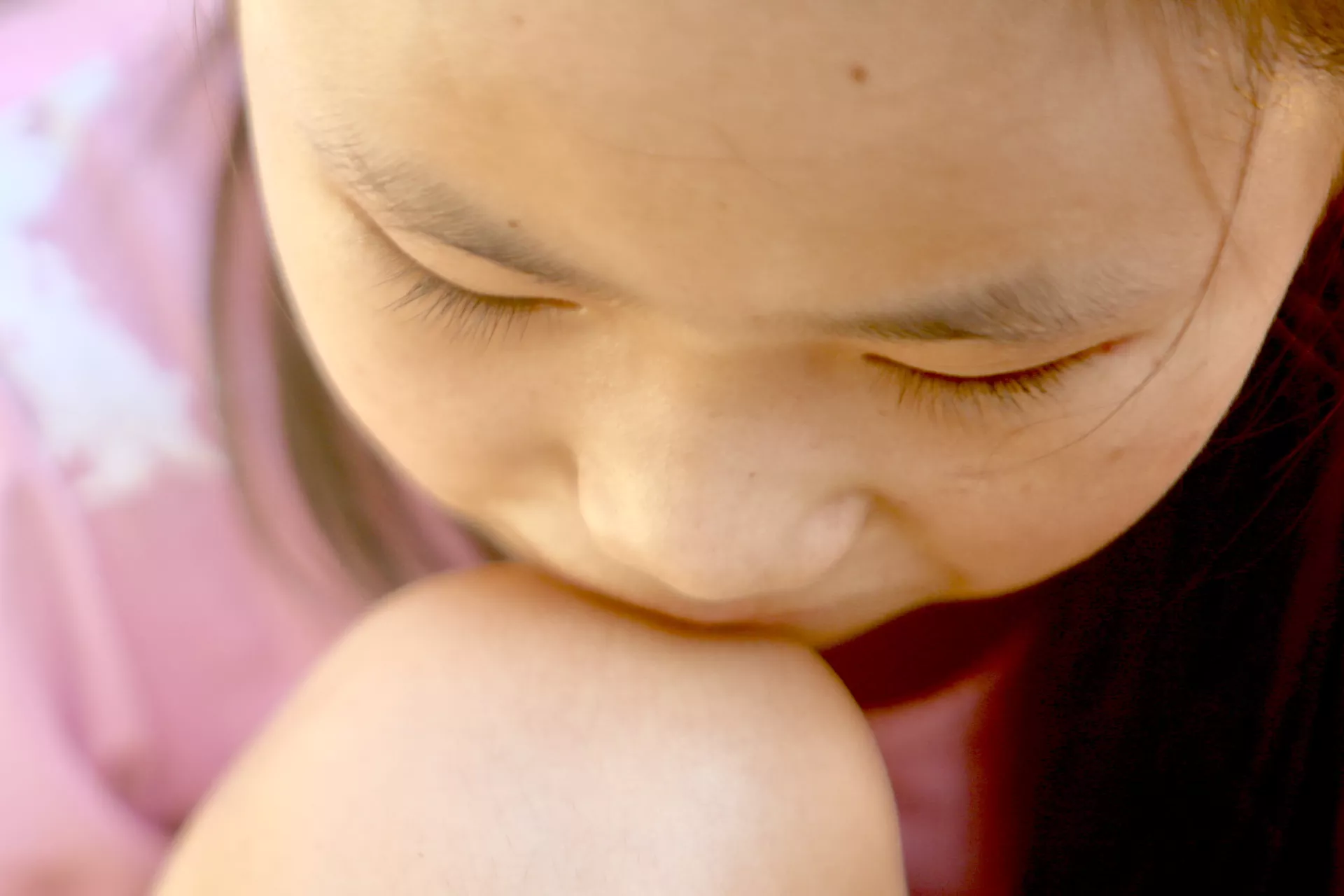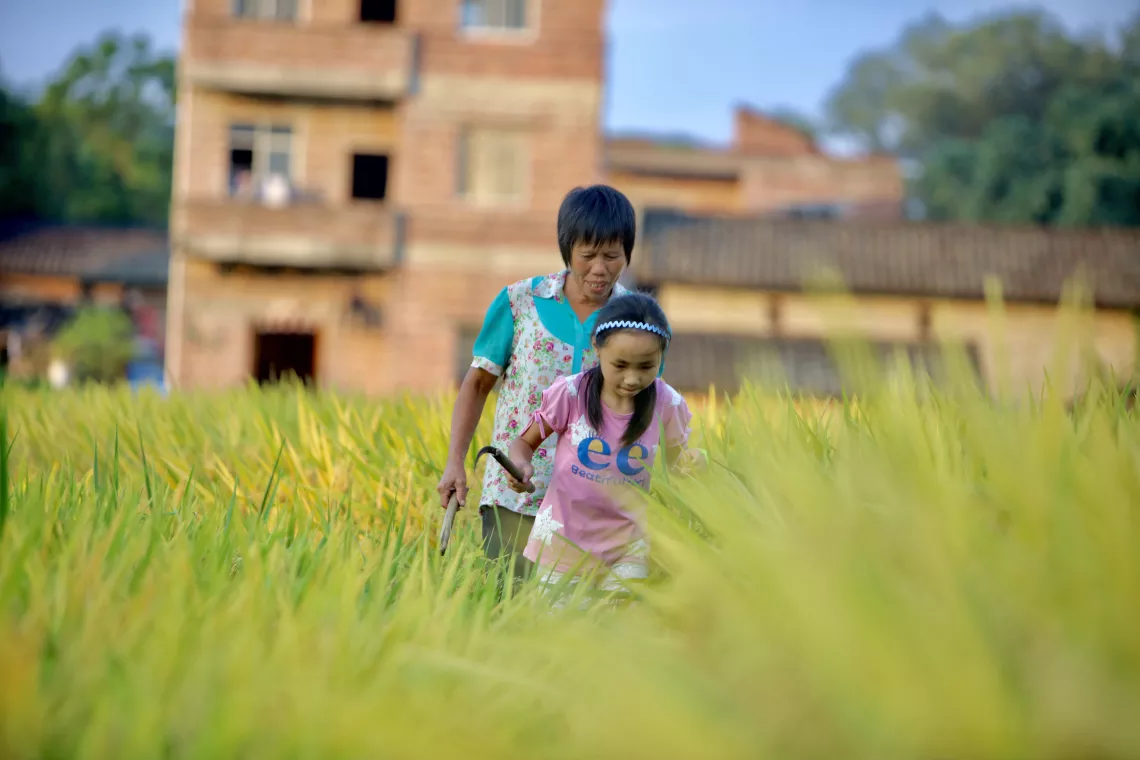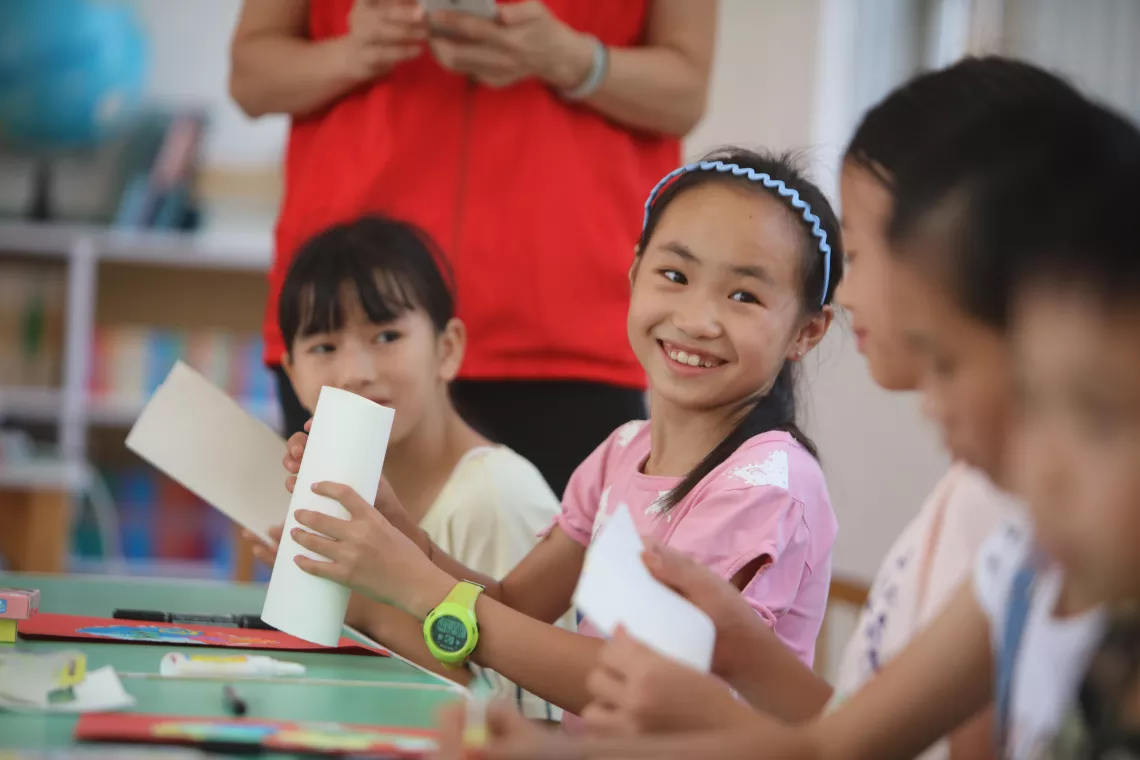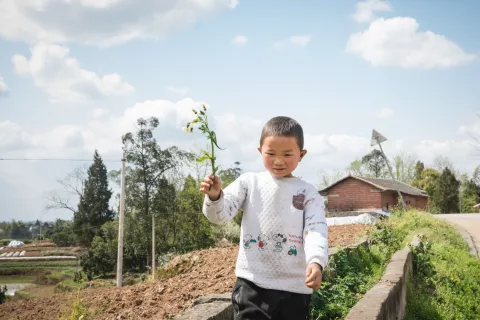Child-friendly space brings happiness to children left behind
Child-friendly space brings happiness to children left behind

Tingting* is a 10-year-old girl who lives with her three younger siblings and her grandparents in rural China. She is one of the millions of children being affected by the massive internal migration in China. As parents head to urban areas seeking better-paying jobs, an estimated 40.5 million children are being left behind in rural communities, meaning almost three out of 10 children in the rural areas are being left behind[1]. Evidences from empirical studies have suggested that, due to the lack of parental bonding and deprivation of adequate care, these children are more vulnerable to challenges in life and are prone to psychological, behavioural and social problems.From the age of 6, Tingting has been helping out her grandparents on the farm and with family chores. The absence of her parents has made Tingting more sensitive than her peers. Today, a UNICEF-supported child-friendly space helps bring happiness to Tingting's childhood.
One scorching afternoon in the harvest season, three sisters, aged 10, 8 and 6, climbed to the terrace of their house in Liutai Village, South China's Guangxi Zhuang Autonomous Region. Rice grains are spread all over the floor, as the two younger girls play and giggle, while the elder girl, Tingting, stares into the lush green rice paddies in the distance, as if deep in thought.
As the sun dims, the three girls each take up a broomstick even bigger than themselves, sweep the grains into a pile and cover them with a plastic sheet, which prevents moisture from getting in. Tingting comes downstairs, picks up a small-sized sickle and follows her grandmother to their family's rice paddy. Taking off her slippers, she jumps into the field, skilfully cuts the rice stalks, and helps grandma carry them home.

Tingting started helping her grandparents with farm work when she was only six years old. Now she also helps to cook the family dinner and look after two younger sisters and a 4-year-old brother.
Tingting and her parents are not close. Her parents left their hometown to find work in Foshan, Guangdong Province, when she was 3 years old, as they couldn't make any money in the village. They come back to spend a week with the family during the Chinese New Year and occasionally visit the family on importantfestivals, like Tomb Sweeping Day or Mid-Autumn Day.
Tingting is very introvert and always keeps her feelings to herself because of low self-esteem.
“I don't know how to educate children, and I'm toobusy with farm work. Luckily, Tingting is very obedient and she helps out a lot,” says Tingting's grandmother. “I'm just worried that she's a bit too shy. She doesn't talk much and seldom mentions her parents.”
Child-friendly Space
In 2014, a child-friendly space (CFS) was set up in Liutai Village to provide community-based services for children and their families.
The CFS model was first introduced to China by UNICEF as part of the emergency response to the 2008 Sichuan earthquake. Over the course of reconstruction, the CFS became an integrated part of the local communities and this successful experience has led to the inclusion of a goal in China's 2011–2020 National Plan of Action for Children (NPA) to establish 'children's places' – providing recreation, non-formal education, psychosocial support and referral services to children and their families – in 90 per cent of all urban and rural communities across China by 2020.
Over the years CFS continued receiving recognitions from the Government of China as an effective model in providing community-based child protection and welfare services to children and families, especially the most vulnerable ones. In late 2015, a key Government policy document on poverty alleviation vowed to strengthen the infrastructure and capacity building of children's places in communities, as part of efforts to develop a service system for children who are left behind.
In recent years, a great number of children's places have been established across the country based on the CFS model. However, the quality of those places varies depending on the understanding of the CFS concept as well as the technical and financial capacities and know-how of local governments and implementing agencies.
Therefore with generous support from IKEA foundation, UNICEF has worked closely with the National Working Committee on Children and Women under the State Council and set up four provincial Technical Support Hubs in Guangxi, Hunan, Shaanxi and Chongqing.
Equipped with provincial expert pools, these Technical Support Hubs (TSH) function as a resource centre at provincial level. Through activities including trainings, monitoring, quality assurance and data gathering, provincial TSHs help ensure CFS deliver sustainable, effective and quality child protection and welfare services to the most vulnerable children and their families.
The CFS in Liutai Village is among the 30 receiving support from the Guangxi provincial TSH, which is equipped with an expert pool consisting of professionals from fields of psychology, law, health and social work. Since the launch of the TSH in November 2016, experts paid several monitoring visits to the village CFS, and the CFS staff and volunteers participated in trainings and study visits to strengthen their skills in providing psychosocial support to children. A database ofall 588 children in the village has been set up, including 187 that are being left behind by their parents. This helps the CFS staff and volunteers to identify the most disadvantaged children in need of support.

Lending support to vulnerable children
The Liutai village CFS now offers a variety of interesting activities for children almost every week, including handcraft class, painting class, sports and games, and life skill trainings. Recently volunteers gave a lecture on sexuality education to 32 village girls, most of whom are children being left behind just like Tingting. They were taught about the physical changes that happen around puberty, about menstruation and how to protect themselves from sexual abuse.
“The girls said no one has ever told them such knowledge before. Some of them, who have already started menstruating, said they were bothered by it, but now they understand it's normal. The lecture helped to defuse the confusion and frustrations around puberty, and the girls also learned how to protect themselves,” says Wei Xueming, the CFS volunteer.
At the beginning of summer holiday, volunteers invite children and their caregivers to training sessions on how to prevent child injuries and drowning. Art workshops are also held regularly at the CFS.
“It's Tingting's favourite place. She's never skipped a single activity,” says her grandmother.
At a painting class, Tingting, along with more than a dozen girls and boys, learns to make traditional masks used in Chinese operas. She paints a colourful mask, and constantly exchanges opinions with her friends, and they giggle. When the class is over, she takes the mask home and sticks it to her bedroom wall.
“I remember when she first came here, Tingting seldom spoke to anyone, and she always kept her head down. There was one time when we organized a parent-child sports activity, she and another girl being left behind by migrating parents burst into tears, and told us they were so upset when they saw other children were joined by their parents in the games, because their parents are away and no one will pair with them to participate in the activities,” says Wei.
“We then realize how hurt she felt and how sensitive these children are when coming to the issue relates to parents. We try to comfort them by sharing with them the challenges we had faced when we were little and help them build confidence by telling them how great they are. I also guaranteed the girls that whenever there are similar activities in the future, we will ensure each of them be paired with a volunteer so that they can enjoy the game as any other children do.”
“Now she's much happier and more confident to interact with other children and volunteers. She even volunteered to join the Children's Committee, helping to manage the CFS and plan and prepare for the activities,” adds Wei.
When asked about her dreams for the future, Tingting tells Wei, “When I grow up, I want to be a volunteer just like you [to help other children].”
Note: *The name of the child has been changed.
[1] National Bureau of Statistics, UNICEF, UNFPA, Population Status of Children in China in 2015, Beijing, 2017





